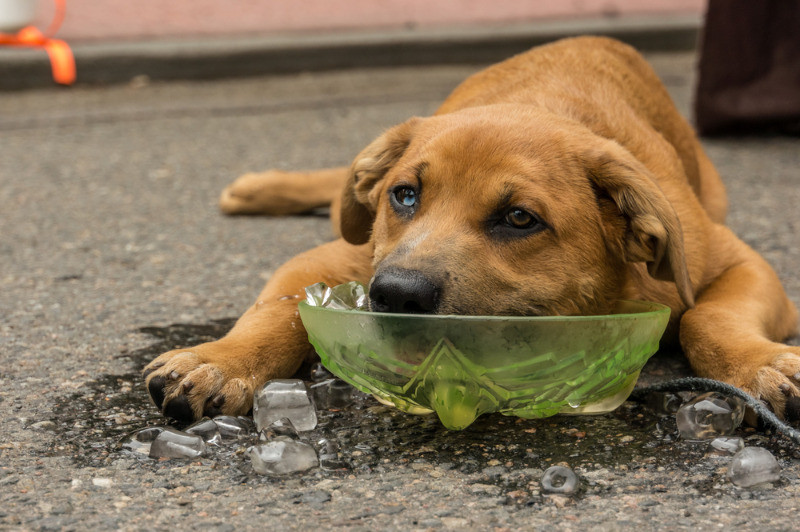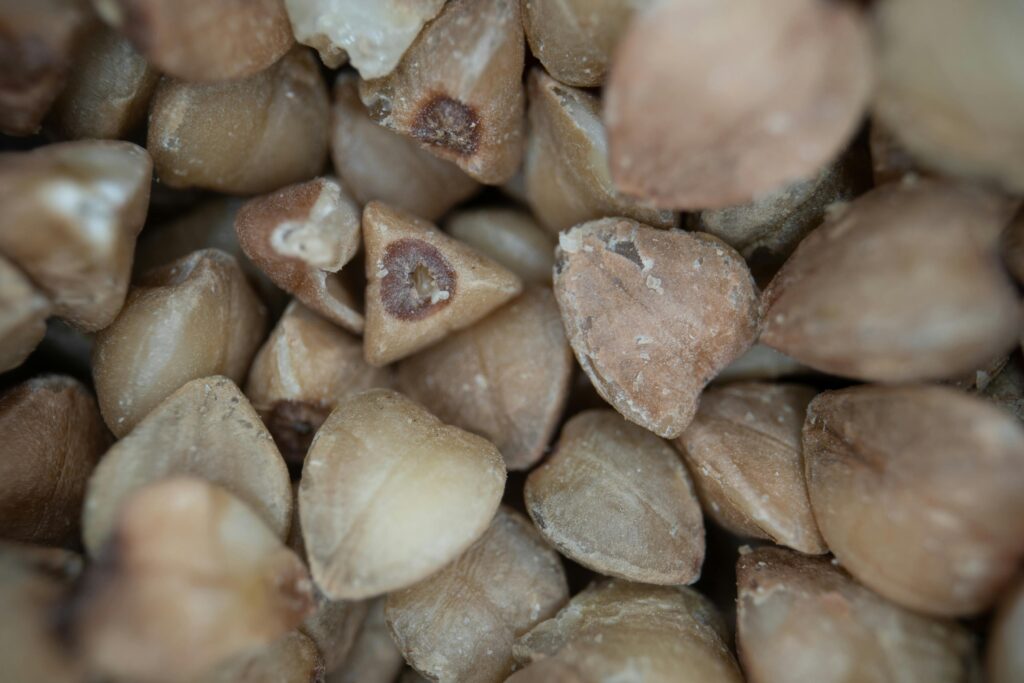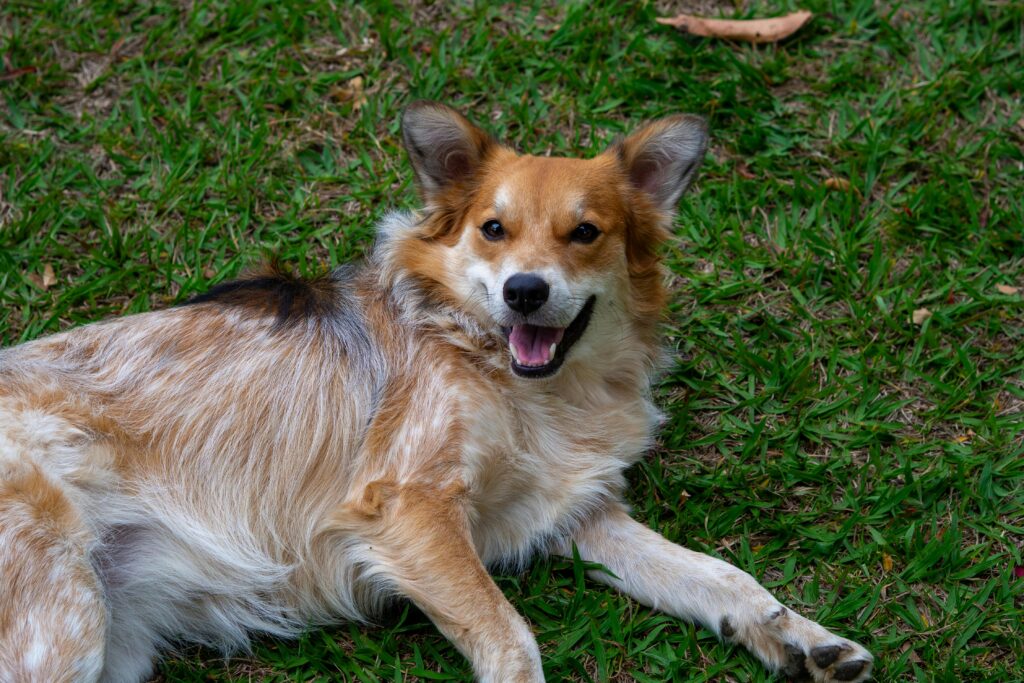- Why Is My Puppy Always Hungry?
- How to Keep Your Puppy Full Without Overfeeding?
- Choose High-Quality, Nutrient-Dense Food
- Stick to a Feeding Schedule
- Add Fiber-Rich Foods
- Offer Healthy, Low-Calorie Snacks
- Use Slow-Feeding Techniques Without Overfeeding
- Keep Your Puppy Hydrated
- Keep Your Puppy Mentally and Physically Engaged
- Avoid Reinforcing Begging Behavior
- Monitor Portion Sizes
- Consult Your Veterinarian
- How do you know if your puppy's stomach is full without extra food?
- My Experience
- Final Thoughts
If you’ve got a puppy that always seems to be hungry, you’re definitely not alone! Puppies grow fast, have tons of energy, and naturally want to eat a lot. However, overfeeding can lead to serious health issues, including obesity and digestive problems. So how do you keep your little furball full and happy without overdoing it? This guide provides practical, science-backed strategies to ensure your puppy stays satisfied while maintaining a healthy weight. Remember, our goal is “keep puppy full without overfeeding”.
Why Is My Puppy Always Hungry?
Before making changes to your puppy’s diet, it’s essential to understand why they might always be looking for more food:
Rapid Growth & Development – Puppies require a higher calorie intake to support their rapid growth.
High Energy Levels – Their active lifestyle means they burn through their food quickly.
Instinctual Behavior – Some puppies have a survival instinct to eat as much as possible when food is available.
Poor Nutrient Absorption – If their diet lacks essential nutrients, they may still feel hungry even after eating.
Medical Conditions – Issues like worms, diabetes, or hormonal imbalances can increase hunger. If you suspect a problem, consult your vet.
How to Keep Your Puppy Full Without Overfeeding?
We solve it in many ways but many of us fail to solve it in the right way. I have highlighted how I have achieved success.
Choose High-Quality, Nutrient-Dense Food
Feeding your puppy a well-balanced, high-quality diet ensures they get the nutrients they need. Look for food with:
High protein – Supports muscle growth and development.
Healthy fats – Provides essential energy.
Dietary fiber – Helps digestion and keeps them feeling full longer.
Essential vitamins and minerals – Promotes overall health and development.
Choose a brand specifically formulated for puppies and check with your vet for recommendations.
Stick to a Feeding Schedule
A structured feeding routine helps regulate your puppy’s metabolism and prevents excessive hunger. Here’s a general guideline:
Under 3 months old – 4 meals per day
For puppies between 3 and 6 months old, feeding them three well-portioned meals a day ensures they get the right nutrients for their growth.
6 months and older – 2 meals per day
Avoid leaving food out all day (free-feeding), as this can lead to overeating.
Add Fiber-Rich Foods
Fiber helps slow digestion, keeping your puppy full for longer without adding excessive calories. Some dog-safe, fiber-rich foods include:
Pumpkin
Sweet potatoes
Carrots
Green beans
Adding small portions of these to your puppy’s meals can help reduce hunger between feedings.
Offer Healthy, Low-Calorie Snacks
If your puppy frequently begs for food, offering healthy snacks can help curb their appetite. Some great options include:
Baby carrots
Cucumber slices
Apple slices (without seeds)
Blueberries
Plain, unsweetened yogurt (in moderation)
These treats provide nutrients without unnecessary calories.
Use Slow-Feeding Techniques Without Overfeeding
Some puppies eat too quickly, which can lead to overeating and digestive discomfort. Slow-feeding techniques can help:
Use a slow-feeder bowl to make mealtime last longer.
Try puzzle feeders to make eating more engaging and mentally stimulating.
Spread kibble on a snuffle mat to encourage slow eating and mimic natural foraging.
Keep Your Puppy Hydrated
Thirst is sometimes mistaken for hunger. Make sure your puppy always has a steady supply of clean, fresh water to stay properly hydrated. It keeps the dog’s stomach full and aids in digestion. You can also:
Add a little warm water or low-sodium bone broth to their kibble to make meals more satisfying.
Offer ice cubes as a refreshing, low-calorie treat.

Keep Your Puppy Mentally and Physically Engaged
A bored puppy might seek food for entertainment rather than actual hunger. To prevent this:
Provide daily walks and playtime to burn excess energy.
Use interactive toys and puzzle games to keep their brain engaged.
Incorporate basic training sessions to provide mental stimulation.
Keeping your puppy active and engaged can help reduce their focus on food.
Avoid Reinforcing Begging Behavior
It’s tempting to give in when your puppy gives you those adorable begging eyes, but reinforcing this behavior can lead to excessive eating. Instead:
Stick to a consistent feeding schedule and avoid giving extra treats.
Train them with positive reinforcement, rewarding good behavior without food.
Avoid feeding them from the table, which encourages bad habits.
Monitor Portion Sizes
Even high-quality food can lead to weight gain if portions are too large. Always:
Measure your puppy’s food based on their age, weight, and breed.
Adjust portion sizes as they grow and become less active.
Check with your vet if you’re unsure about the right amount to feed.
Consult Your Veterinarian
If your puppy still seems excessively hungry despite a well-balanced diet and proper portioning, it’s important to consult a vet. They can:
Check for underlying medical conditions like parasites or metabolic disorders.
Recommend a customized feeding plan tailored to your puppy’s needs.
Suggest dietary supplements if your puppy requires additional nutrients.
How do you know if your puppy’s stomach is full without extra food?
We all should know how much food a puppy needs per day to grow. It doesn’t matter if you know, we are publishing an article on this topic, you can check it out if necessary. However, the amount of food we give to puppies every day is fixed for them. But when their needs increase, we should apply the above strategy. After teasing you for a while, then they will return to their normal routine. In this way, you can easily understand whether your puppy’s stomach is full without overfeeding.
My Experience
I was very happy when my puppy started eating a lot, but later, I learned that it was not a good thing. They were especially interested in eating a lot. At this time, our beloved puppy would look like he is very hungry. Don’t get emotional when you see a hungry puppy, it is a stage of his age that motivates him to eat a lot. Since then I have been researching this issue more and finding various solutions. And I have also shared it with you.
Final Thoughts
Keeping your puppy full and satisfied without overfeeding is all about balance. Choosing high-quality food, sticking to a routine, incorporating fiber-rich snacks, and engaging your puppy with activities can all help regulate their hunger. If in doubt, always check with your vet for personalized advice.
By following these tips, you’ll ensure your puppy grows into a happy, healthy, and well-fed adult dog!




